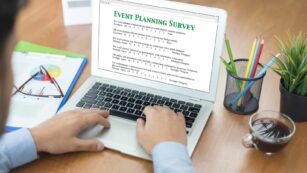Event planning can be a daunting task, especially when it comes to managing finances. A well-crafted event planning budget template not only simplifies tracking expenses but also ensures that every dollar is accounted for. From small gatherings to large-scale conferences, the key to a successful event often lies in meticulous budgeting.
Event Planning Budget Template
An effective event planning budget template is essential for overseeing funds and ensuring the success of any event. It guides event planners through the financial intricacies, facilitating better financial decisions.
Why Budgeting Is Critical in Event Planning
 Budgeting serves as a financial blueprint for event planning, creating a framework for expense allocation and financial decision-making. If planners overlook this step, they may encounter shortfalls or unnecessary spending. A meticulous budget helps in identifying potential savings, allocating resources efficiently, and enhancing the overall event experience. It also acts as a tool for negotiating with vendors, securing sponsorships, and establishing realistic financial boundaries.
Budgeting serves as a financial blueprint for event planning, creating a framework for expense allocation and financial decision-making. If planners overlook this step, they may encounter shortfalls or unnecessary spending. A meticulous budget helps in identifying potential savings, allocating resources efficiently, and enhancing the overall event experience. It also acts as a tool for negotiating with vendors, securing sponsorships, and establishing realistic financial boundaries.
Key Components of an Event Budget
The structure of an event budget should include several key components to capture all possible expenditures and revenues:
-
Venue Costs: These include rental fees, security, and utilities. Venues often represent a significant portion of the budget.
-
Catering: This covers food and beverage expenses. Planners must consider per-head costs and service fees.
-
Entertainment and Speakers: Fees for performers, speakers, and their accommodations and travel expenses, are critical.
-
Decor and Supplies: Items for event ambiance and functionality, such as decorations and audio-visual equipment.
-
Marketing and Communications: Costs associated with promoting the event, including digital marketing, print materials, and signage.
-
Staffing: Salaries or fees for event staff, including event planners, coordinators, and support staff.
-
Contingency Fund: Typically 10-20% of total costs, set aside for unexpected expenses.
Each component demands careful consideration to prevent overspending and to ensure every dollar contributes to the event’s success.
Exploring Event Planning Budget Templates
 A budget template serves as a critical tool for event planners to forecast and track the financial details of their events. It ensures all expenses and revenues are accounted for, thus maintaining a balanced budget.
A budget template serves as a critical tool for event planners to forecast and track the financial details of their events. It ensures all expenses and revenues are accounted for, thus maintaining a balanced budget.
An event planning budget template is a pre-formatted document designed to manage the financial aspects of event planning. This tool provides a structured way to log each anticipated cost and revenue source, allowing planners to see a financial overview at a glance. Typically, these templates will incorporate various categories of expenses such as venue rental, catering, decorations, and entertainment. Additionally, it includes sections for detailed income sources like ticket sales or sponsorships.
Benefits of Using a Budget Webinar
Using a budget template comes with several advantages. First, it streamlines the financial planning process, reducing the time spent on manual calculations and adjustments. It also enhances accuracy in financial reporting, minimizing errors and discrepancies that can arise from manual handling. Furthermore, a well-implemented budget template helps identify potential cost savings by revealing areas of overspending. Lastly, it aids in communicating financial plans and expectations clearly among the team members and stakeholders, ensuring everyone is aligned with the financial goals and status of the event. By optimizing financial oversight, event planners can achieve better outcomes and ensure the event remains within the designated financial parameters.
How to Choose the Right Event Planning Budget Template
Factors to Consider When Selecting a Template
 When selecting an event planning budget template, several factors come into play:
When selecting an event planning budget template, several factors come into play:
-
Compatibility with Event Scale: Larger events require more detailed templates that can handle multiple funding sources and expense categories, such as international conferences or festivals.
-
Ease of Use: The template must be user-friendly, allowing quick updates and easy navigation. Templates with dropdown menus and pre-filled sections can save time and reduce errors.
-
Customizability: A good template is flexible with customizable fields that adjust to specific needs like adding or removing categories depending on the complexity of the event.
-
Integration Capability: If the event uses multiple software systems for registration, marketing, etc., the chosen template should integrate seamlessly with these tools to ensure consistent data flow.
-
Reporting Features: Effective templates provide robust reporting capabilities, enabling quick generation of financial reports and real-time tracking of budget vs. actual spending.

